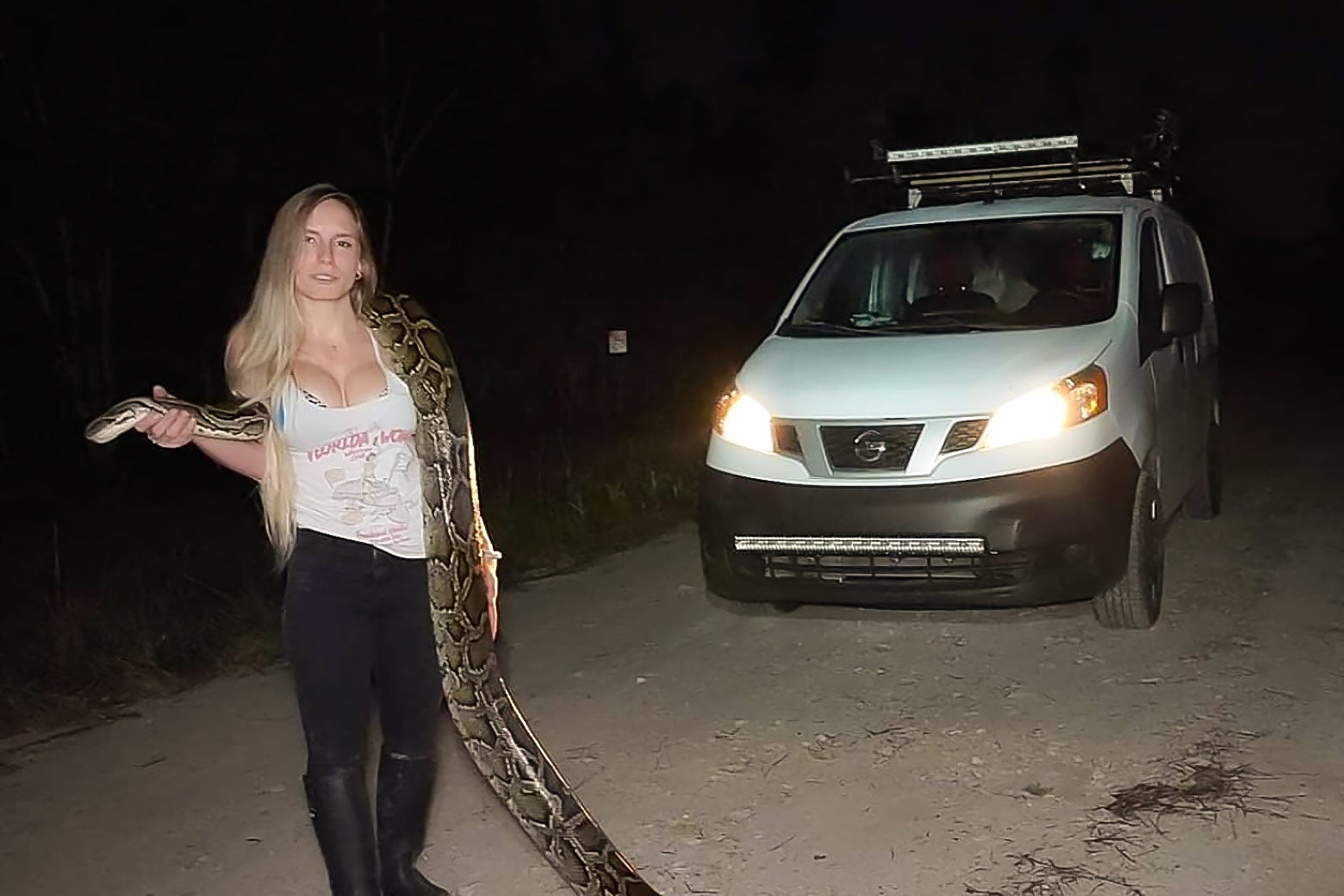UPDATE: In a stunning triumph, Taylor Stanberry, a seasoned snake hunter, has captured 60 pythons during the 2025 Florida Python Challenge, securing a grand prize of $10,000. This annual event, aimed at combating the invasive Burmese python population in the Everglades, has drawn attention for its critical role in wildlife conservation.
The competition, held from July 10 to July 20, 2025, challenges participants to remove as many pythons as possible to protect native species. Stanberry’s remarkable haul—three times that of the previous year’s winner—has placed her in the spotlight as the first female to win the ultimate grand prize.
“I was in shock when I found out I had won,” Stanberry said after the awards ceremony in Havana, Florida. “I didn’t even know my numbers were good enough to win until I was on the podium.”
The challenge not only tests skill but also requires immense physical endurance. Stanberry’s grueling nights began around 7 PM and often lasted until 6 AM. “I would catch a few hours of sleep before tending to my exotic animal sanctuary,” she explained, highlighting the dedication required to balance both her passion and her responsibilities.
Throughout the competition, Stanberry faced unique challenges, especially with the increased number of participants. “There are so many extra people in the area during the competition,” she remarked, noting the mix of cars and participants hunting for pythons. “The driving is the most dangerous part, not the snakes.”
Hunting conditions were far from ideal. The heat and humidity, with temperatures reaching between 87 and 92 degrees, added to the difficulty. Stanberry emphasized the importance of hydration and pest control, although she humorously remarked that “the bug spray doesn’t help”—a testament to the relentless nature of the Florida wildlife.
The emotional highs and lows of the hunt were palpable. “Some nights I’d catch nothing, but then I’d have nights where I’d snag ten pythons in an hour,” she recounted. “It’s all about timing and luck.” One particularly memorable moment was discovering a python nest, allowing her to catch up to 30 baby pythons, which she described as both exciting and chaotic.
As Stanberry reflects on her achievement, she reinforces the importance of the challenge’s purpose. “I don’t want people to hunt pythons just for fun; it’s about saving our native wildlife and the Everglades.”
The event has garnered significant attention and sparked discussions about invasive species management. “We might not eliminate them all, but taking action matters,” she concluded.
As the Florida Fish and Wildlife Conservation Commission continues its efforts, the success stories from participants like Stanberry inspire others to engage in conservation efforts actively. Expect more developments as the conservation community rallies to address the ongoing challenge posed by invasive species in Florida’s unique ecosystems.
